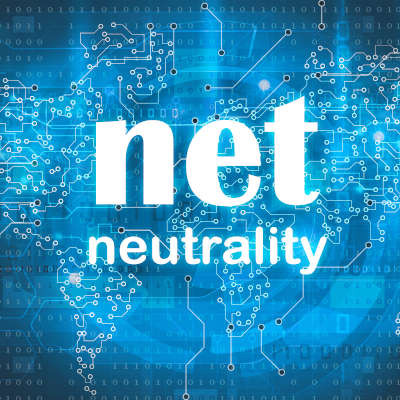JS Business Solutions Blog
Your privacy on the Internet matters, even if you don’t think you have anything to hide. Over the last few years, this has become more and more evident as we watch tech giants profit off of understanding the people who use their services. Facebook, Amazon, and Google are among them. Google in particular has made some recent policy changes that are worth understanding.
The Internet was always envisioned to be a network capable of sharing information across the globe—hence, the term “world wide web.” However, many online services are currently at odds with governing bodies, many business tactics and decisions impacted or even prohibited as a result. Let’s examine some of these tactics, and how the Internet has been impacted.
It wasn’t long ago that we shared a post that described the most common formats used to share image media online or via your email. The idea is to make sure the images you generate are contained in the smallest amount of space possible (or a smaller file size) to make them quick and easy to share and download—the trick is to do it without sacrificing any image quality.
Let’s go over how to do just this while using the most common image editing program out there: Adobe Photoshop (although the same process should work for just about any application you use).
It has been made very clear over the past few years—last week in particular—that the political atmosphere in the United States is particularly prickly, to put it mildly. One contested subject has, however, flown under the radar in recent months: net neutrality. Let’s reexamine the situation surrounding net neutrality and what is likely to come about with the new administration.
So, as the boss, you’re concerned about your employees wasting time, especially on the Internet. However, you can’t exactly keep them off the Internet, as that’s where their work is done. With distractions like social media, streaming, and literally everything else out there to draw their attention away, how can you hope to compete?
The typical business network will contain quite a few critical assets that need to be protected, which means that you need to seriously consider anything you add to that network. Take the wireless network that your business uses--how secure is it, and how well does it work? Well, we have a few ways that you can ensure that the answer to both these questions is “well.”
With the 2018 repeal of net neutrality laws, many Internet users were concerned about the financial ramifications of those companies who profit off of the delivery of the Internet being put in control. The assumption was that speeds would plummet while costs grew. Now, about a year later, have these predictions turned out to be reality?
After the net neutrality laws were repealed in 2018, many people were afraid of what that would mean for their wallets. As huge telecommunications corporations gained control over the Internet, many Americans were left supposing that they were going to be facing higher bills and slower speeds. How has this materialized in the 11 months since net neutrality was repealed?
The average technology user finds wireless connectivity practically a necessity. The second the Wi-Fi drops out and is unusable, panic ensues. The same can be said for any business that relies on it. In particular, organizations that depend on wireless connectivity can’t even function without it. We’ll walk you through ways your organization can benefit from a strong wireless network.
Finding the right web browser for your business’ needs can be challenging, as every user is different and will likely have a preference. While it’s easy to list off the most well-known browsers, including Google Chrome, Safari, Microsoft Edge, and Mozilla Firefox, it’s more difficult to find one that suits your needs. Which one can you count on most to get your work done in an efficient manner?
Your business relies on the Internet in order to accomplish a number of goals, including finding out information about your competition, accessing applications stored in the cloud, and simply staying in touch with your various contacts. However, there’s always room for improvement, and even some of the most simple tips can be a considerable help in achieving your day-to-day goals. Here are three ways you can make better use of your Internet browser.
It’s safe to say that most businesses today rely on the Internet, as do most of the humans who work at them. Therefore, when the cable suddenly goes out and their connection is lost, many employees may find themselves struggling with a downtime incident. There can be many causes to a lost Internet connection, with just as many ways to identify and resolve it.
A slow Internet connection should be the least of our worries, but somehow, this most minor of inconveniences can be one of the most frustrating experiences in modern computing. Fortunately, there are a few ways to potentially improve your connection. At the very least, they might help to explain why your connection suffers.
Believe it or not, the Internet we rely on so much is only accessible by half of the world today. It can be hard to grasp, considering the effectively-constant access that we have, but more than three and a half billion people in the world lack the means to access any of it. However, Google started to change that years ago, when it created an R&D facility known as Google X.



















